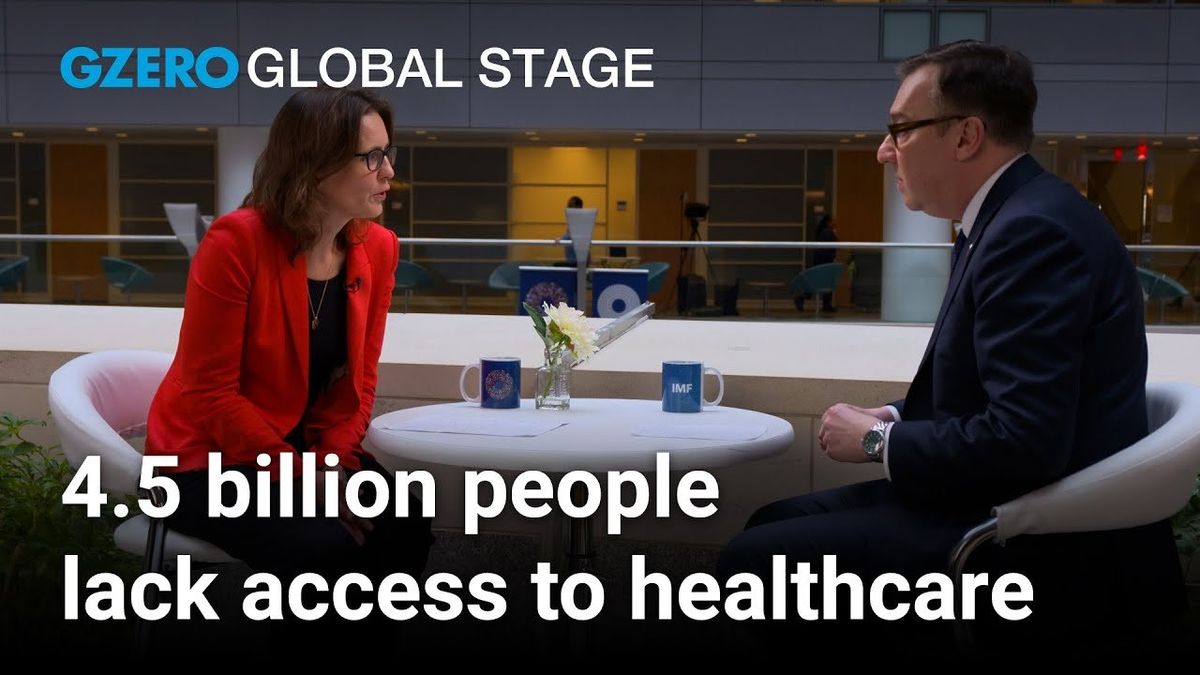Globally, a shocking 4.5 billion people — more than half the world’s population — lack access to essential healthcare and another 2 billion have to make tough financial choices to find care. That means for the majority of people on earth when a child is sick, families can’t get medicine; when a mother gives birth, the delivery is unsafe; when people develop chronic conditions, they go untreated.
Billions of individual tragedies come together to hold back development in some of the world's most fragile countries, and that’s where the World Bank has a role to play. Monique Vledder runs the Global Health Practice at the World Bank, and she sat down with GZERO’s Tony Maciulis at a Global Stage event for the institution’s annual Spring Meetings.
She announced ambitious goals to start tackling the problem: “We are planning to reach, with our financing and our programs, 1.5 billion people over the next five years with quality health services,” she says, expanding the World Bank’s geographic footprint in healthcare to target vulnerable countries and build capacity in their healthcare systems.
For more of our 2024 IMF/World Bank Spring Meetings coverage, visit Glogal Stage.
- Advancing racial equality and economic opportunity ›
- Get AI out of my health care ›
- Slapping nutrition labels on AI for your health ›
- Hard Numbers: Grim warnings on climate change, Rich get richer, Gender healthcare gap, AI dominates the conversation ›
- Hot topics at the IMF-World Bank meetings - GZERO Media ›
- Using AI to diagnose patients with a smartphone but no healthcare access - GZERO Media ›

















